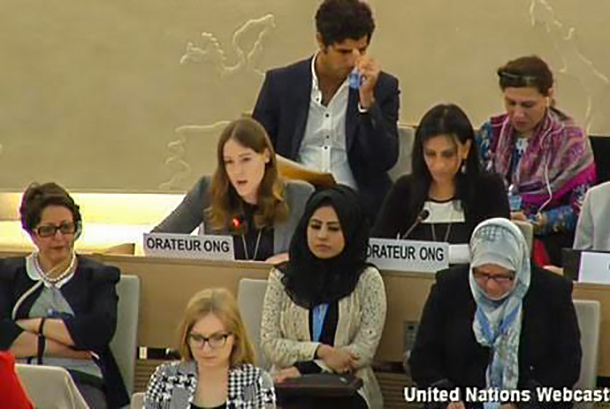 Geneva — China's current policies in Tibet are undermining peace and stability, a leading Tibet advocacy group told the United Nations Human Rights Council on 20 June.
Geneva — China's current policies in Tibet are undermining peace and stability, a leading Tibet advocacy group told the United Nations Human Rights Council on 20 June.
In the speech delivered by Kai Müller, executive director of the International Campaign for Tibet (ICT) in Germany, he outlined detailed policies, laws and regulations that create a climate of repression and fear in Tibet, and which are in contravention of international human rights law.
Müller made the speech at a side event organised by the Society for Threatened Peoples during the on-going session of the United Nations Human Rights Council in Geneva. Ngodup Dorjee, a representative of His Holiness the Dalai Lama in Geneva moderated the event and Tienchi Martin-Liao, president of the independent Chinese PEN organisation, which fights for freedom of expression, was among the panellists.
The speech followed an earlier statement made by ICT on behalf of the Helsinki Foundation for Human Rights at the Human Rights Council session on 17 June. It responded to a report from the UN Special Rapporteur regarding the promotion and protection of the right to freedom of opinion and expression.
The statement focused on the risks Tibetans face when expressing their views, risks that have become even greater since China adopted new "stability maintenance" measures, which categorise most expressions of Tibetan identity or culture as "splittist".
The statement also raised concerns over China's recently adopted counter-terrorism law, which combines the notion of terrorism with undefined religious "extremism". This potentially gives the authorities the power to prosecute Tibetans under terrorism laws for expressions of identity, acts of non-violent protest, or for criticism of ethnic or religious policies.
During the statement, Mélanie Blondelle, policy and advocacy officer at ICT in Brussels said: "We call upon the Human Rights Council, of which the People's Republic of China is a member, to ensure the release of all those detained for the mere reason of having exercised their right to freedom of opinion and expression, and to urge China to allow independent observers access to Tibet to verify the extent of the violations to freedom of expression on the ground".
In the UK a group of British Parliament members and members of the House of Lords have also urged the UK government to raise China's "stability maintenance" campaign to the UN Human Rights Council.
The MPs and Lords who make up the All-Party Parliamentary Group for Tibet (APPGT) also said the UK should call for the unconditional release of all political prisoners and press China to allow visits to Tibet by UN Special Representatives.


![Tibet has a rich history as a sovereign nation until the 1950s when it was invaded by China. [Photo: File]](/images/stories/Pics-2024/March/Tibet-Nation-1940s.jpg#joomlaImage://local-images/stories/Pics-2024/March/Tibet-Nation-1940s.jpg?width=1489&height=878)















